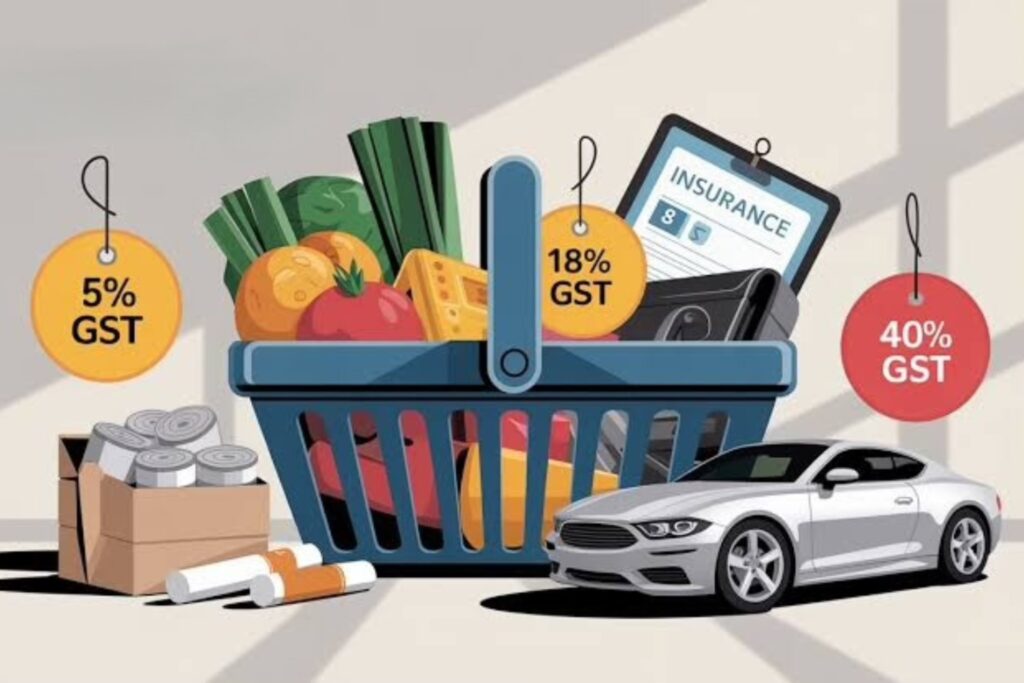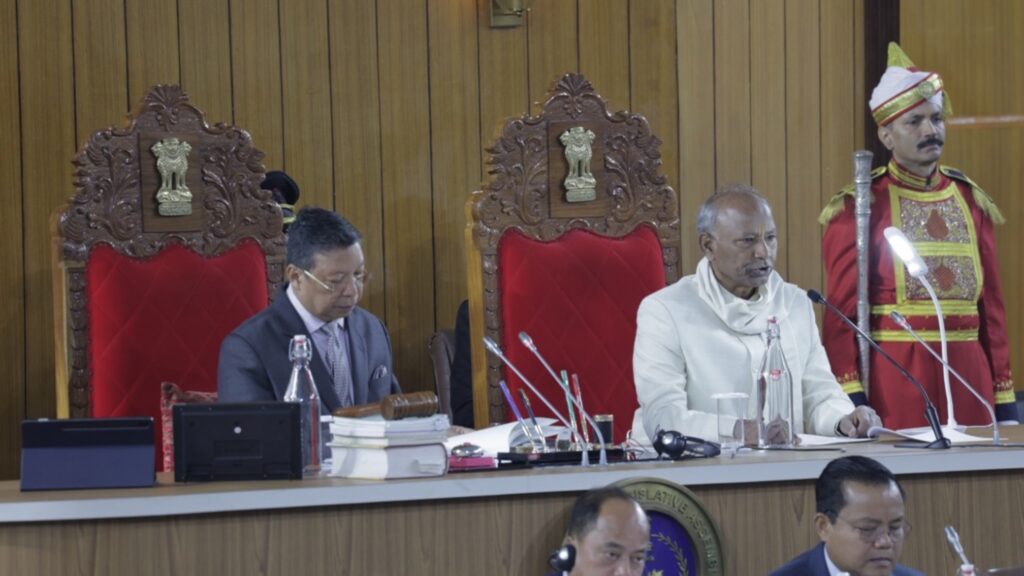Shillong, September 22 : India is set to implement sweeping Goods and Services Tax (GST) reforms, termed GST 2.0, with the new rates coming into effect from September 22, 2025. Approved by the GST Council during its 56th meeting in New Delhi, this reform introduces a simplified structure designed to ease compliance and benefit both citizens and businesses.
Key Highlights of GST 2.0
- Two Slab System: The revised tax regime will have only two primary GST rates — 5% for essentials and merit goods and 18% for most other goods and services.
A special 40% de-merit rate will apply only to luxury and sin goods such as yachts, expensive superbikes, and sugary drinks. - Zero GST on Essential Commodities: Basic necessities including roti, paratha, milk, paneer, and basic medicines will now be completely tax-free, reducing household expenses significantly.
- Lower GST on Everyday Items: Kitchen and bathroom essentials like soaps, shampoos, toothpaste, hair oil, utensils, bicycles, and cycles will attract only 5% GST, making daily living more affordable.
- Health & Insurance Relief: Life and health insurance policies are now 0% GST, while life-saving medicines and medical equipment will either be GST-free or taxed at a minimal 5%, ensuring healthcare remains accessible and cost-effective.
- Cheaper Shopping for Festivities: Popular packaged foods such as noodles, snacks, chocolates, ghee, and coffee will see tax rates cut to 5%, bringing festive cheer to households and businesses.
- Electronics and Vehicles at Lower Rates: GST on cars, motorcycles, ACs, TVs, dishwashers, washing machines, buses, and trucks will now be 18%, down from the previous 28%, reducing the cost of consumer electronics and transportation.
- Support for Small Traders and Farmers: Items like tractors, farm machinery, handicrafts, leather goods, textiles, fertilizers, and acids will attract just 5% GST, aiding agriculture and small-scale industries. Traders will also benefit from faster refunds, easier compliance, and quicker dispute settlements.
- Boost to Renewable Energy and Services Sector: GST on renewable energy devices and parts and hotel rooms under ₹7,500, along with gyms, salons, yoga, and wellness services, has been brought down to 5%.
The restructured GST framework is expected to boost consumption, increase household savings, and stimulate economic growth by making goods and services more affordable. The government estimates substantial revenue generation due to higher demand and improved compliance.
However, tobacco, gutkha, bidis, and cigarettes will continue to be taxed at the existing high rates until further review.
Launched originally on July 1, 2017, the GST system was a landmark step toward creating a unified tax structure. After eight years, GST 2.0 marks the next phase—simpler, more efficient, and designed to empower citizens while supporting businesses.
With reduced rates and a focus on essential commodities, GST 2.0 is poised to make everyday life more affordable and to give India’s economy a significant push forward.








